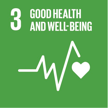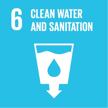About this project
The Value Proposition
The JuaMaji Business in a Box, is a complete end to end solution for community development, that enables organisations to quickly and sustainably set up JuaMaji Community Businesses, in BoP communities.
The JuaMaji Community Businesses produce water as a by-product of a fish farming business through our passive solar distillation system. The safe drinking water is then provided at low cost or free to the community, eliminating the cost and time of boiling or health risk from untreated water.
The Need
Contaminated drinking water contributes to 426 million diarrhoeal cases in East Africa each year (Gates Foundation). In Kenya, diarrhoea is the leading cause of death, where 41% of people still rely on unimproved water sources (Water.org).
One reason this is such a big challenge, is that small-scale rural water purification is often unsustainable. Population densities are low, thus systems either require users, who live on <$5 per day, to pay high rates for water or are dependent on donors.
The most common solutions are boreholes. Boreholes do not guarantee clean water and require large investment and ongoing maintenance with no financial ROI. Alternatively people boil water, an expensive highly polluting method; or they use chlorine, which faces issues with uptake and taste.
How JauMaji works
The JuaMaji system is an Ikea style assembly constructed above a pond:
- A bottomless tent hangs into the water, creating a seal;
- The sun evaporates the surface water;
- which condenses on the inside of the tent and is channeled to storage tanks;
- The 99.99% distilled water is then remineralised.
From a 5x10m pond 400L of water is purified daily. Meaning one JuaMaji provides 200 people with drinking water every day!
To ensure the business isn’t dependent on selling the water, the pond is productively used to farm fish.
The business will conservatively generate €5,500/yr and provide an entrepreneur income 5x the community average.
To scale JuaMaji quickly and effectively, we use our Business in a Box model:
- Organisations buy a JuaMaji Business in a Box.
- WSV trains them on every step in setting up and supporting a JuaMaji Community Business.
- The organisation selects and trains local entrepreneurs, then provides them with a loan to buy the JuaMaji system from WSV.
- This is then repeated with all relevant communities the organisaiton supports, with support from WSV.
- This creates local ownership, sustainable impact, and incentives for each stakeholder.
About WSV
Spun out from the University of Southampton by Bradley and Adam in 2016, WSV develops business solutions to development challenges with and for communities living on under $5 a day. Once proven, we systemise their operation and support into a ‘Business in a Box’ which we sell to organisations and support them long-term to implement. We have partners in 5 African countries and have set up over 250 community businesses.
Goals and Objectives
Our goal as a company is to help communities realise their potential through replicable solutions - JuaMaji fits perfectly within this. A radically replicable solution that empowers people to tackle the prevalence of waterborne diseases in their community, whilst stimulating the local economy.
Objectives for JuaMaji:
Over the next 6 months:
- To complete the developments of the Ikea style assembly kit.
- To complete detailed community and market research to better inform the JuaMaji business model.
- To test the different fish farming options in the JuaMaji
- To launch 2 pilots, with our local partners and existing fish farmers, providing 800 people with access to safe drinking water.
Over the next 3 years:
- To provide safe drinking water to 6,000 people
- To set up over 30 JuaMaji businesses
- To be generating over $150,000 per year in revenue for entrepreneurs in BoP communities and indirectly support the local economy.
- To scale JuaMaji in East and Southern Africa
Our objectives, also link into the SDGs, in particular:
- SDG 2 Zero Hunger - providing nutritious fish and income opportunities to communities.
- SDG 3 Good health and well-being - reducing the spread of diseases.
- SDG 4 Quality education - JuaMaji ponds set up in schools provide clean water and learning opportunities for pupils and income for schools.
- SDG 6 Clean water and sanitation - providing low-cost or free access to safe drinking water.
- SDG 8 Decent work and economic growth - creating jobs for JuaMaji entrepreneurs and stimulating the wider fish farming value chain.
- SDG 14 Life below water - promoting fish farming and as a result reducing the stress on wild fish stocks and pollution of marine environments.
Expected result
Using Kenya’s Vision 2030 & Big Four Action Plan as a guideline, we have identified how JuaMaji can help the welfare and economic development of Kenya.
Health (Big4)
- Dramatically reduced risk of waterborne diseases.
- Reduced malnutrition through adding micronutrients missing from diets into the water after distillation.
- Alternative application - in some areas high water salinity would prevent fish farming. In this context JuaMaji can be used as a humanitarian tool to desalinate the water.
Economic
- Creating livelihoods for the JuaMaji entrepreneurs and their employees - who are forecasted to earn £150pm, on average 5x the community average. (Vision2030)
- Supporting the fish farming value chain by creating a greater supply of fish, demand for inputs, employment and skills. (Big4)
- Poverty reduction from reduced healthcare costs due to diarrhoea (indirect) (Vision2030)
Environmental
- Reducing overfishing by creating alternative more cost effective models of fish farming.
- JuaMaji means people do not need to burn charcoal to purify water (assumption to test in Phase 1), which reduces: deforestation; indoor air pollution; respiratory diseases; greenhouse gas and particulate emissions.
Gender equality
- At least 50% of entrepreneurs will be women (Over 70% of WSV’s entrepreneurs have been women).
- Reduced time spent by women and girls preparing drinking water; gathering wood for boiling water; caring for the sick; and reduced exposure to diseases.
Education
- Reducing the 443 million school days missed globally each year from water-related diseases (UNDP).
- JuaMajis built in schools will provide an income for the school and clean drinking water for students and staff.
Capacity
- Increased skills in entrepreneurship, fish farming and hygiene for entrepreneurs and organisations.
- Independent businesses create improved sustainability and scale of an organisations’ impact.
We will measure this impact through monthly business reports from entrepreneurs, annual community surveys and observations.
Sustainable Development Goals
About me / organisation
Bradley Heslop
Spun out from the University of Southampton by Bradley and Adam in 2016, WSV develops business solutions to development challenges with and for communities living on under $5 a day. Once proven, we systemise their operation and support into a ‘Business in a Box’ which we sell to organisations and support them long-term to implement. We have partners in 5 African countries and have set up over 250 community businesses.
Website Website

